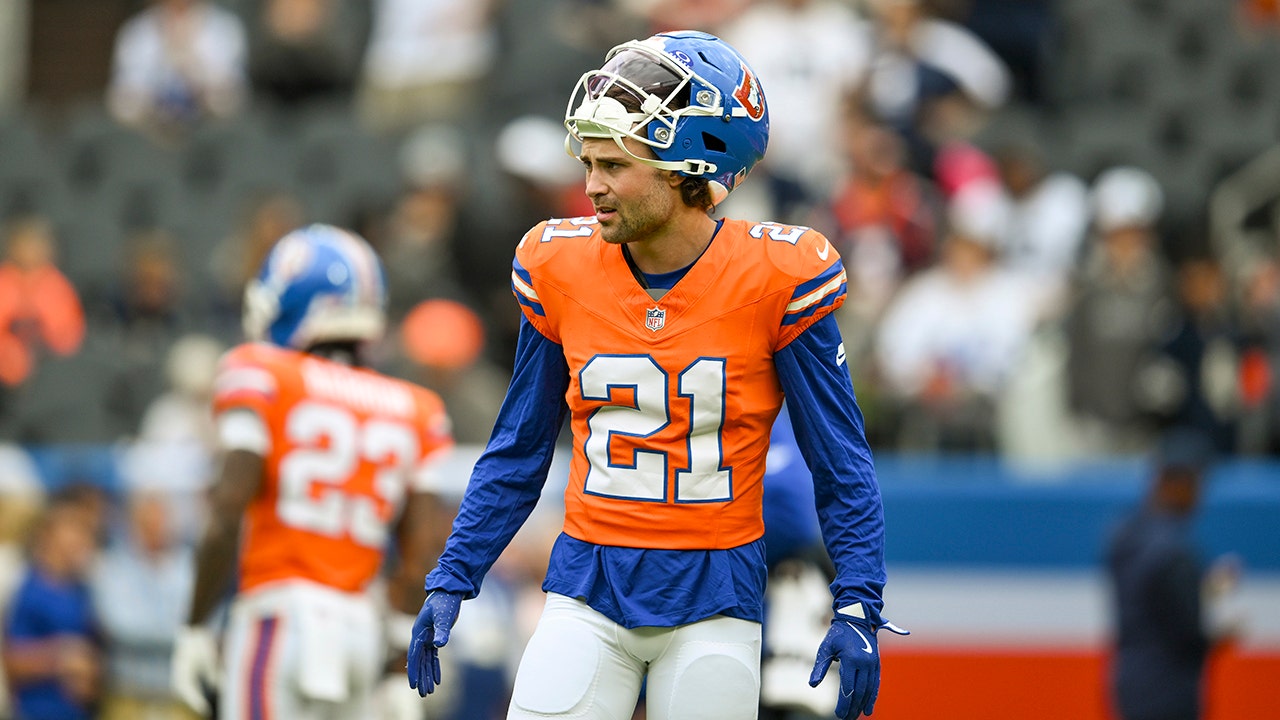In a remarkable display of resilience and skill, the Denver Broncos orchestrated an incredible comeback by scoring 33 points in the fourth quarter to clinch a narrow 33-32 victory over the New York Giants. This thrilling win has sparked conversations not only about the team's offensive prowess but also about key individual performances and broader issues within the NFL.
One of the standout players for the Broncos this season has been cornerback Riley Moss. Despite being recognized as one of the top cornerbacks in the league, Moss has faced an unusual challenge: he has been flagged for defensive pass interference more times than any other player in the NFL this year. Through eight games, Moss has been penalized seven times for defensive pass interference, with five of those penalties accepted and two declined. This statistic is striking, especially considering Moss’s high level of play, which includes nine defended passes and 38 combined tackles, contributing significantly to the Broncos’ 6-2 record.
Moss's teammate and reigning Defensive Player of the Year, Patrick Surtain II, has voiced concerns that these penalties may be influenced by racial bias. Moss is one of the few White cornerbacks in a position predominantly played by Black athletes in the NFL, and Surtain suspects that referees might be unfairly targeting Moss because of his race. During a recent episode of the podcast "Closed on Sundays with Pat and Terrion," Surtain candidly discussed his views on the situation, expressing frustration over what he perceives as “racial profiling” against Moss.
Surtain recalled a specific incident from the Broncos’ convincing 44-24 victory over the Dallas Cowboys, where Moss was called for a defensive pass interference penalty that Surtain felt was unjustified. On that play, Moss was in perfect position against one of the league’s best wide receivers, CeeDee Lamb, and appeared to play the ball cleanly. Yet, the flag was thrown against Moss, a call that mystified Surtain and left him questioning the motives behind the penalty. “I don’t know what it is. What they got against him?” Surtain said, emphasizing his confusion and concern.
The conversation about potential racial bias in officiating was further supported by Detroit Lions cornerback Terrion Arnold, who asked Surtain directly if he believed Moss was being profiled. Surtain’s response was emphatic: “Yeah, they profiling him. It gotta be, bruh. I don’t know what it is.” This candid admission highlights an ongoing and sensitive issue in professional sports, where players and analysts alike have raised questions about fairness and the impartiality of officiating.
Riley Moss, 25, is currently in his third NFL season and has rapidly become a key defensive figure for the Broncos. With Patrick Surtain II sidelined due to a strained pectoral muscle expected to keep him out for several weeks, Moss will increasingly be relied upon to cover opposing teams’ top wide receivers. His ability to handle this responsibility will be crucial for the Broncos as they strive to maintain their strong standing in the league.
The Broncos, the NFL, and the NFL referees association have all been contacted for comment regarding Surtain’s allegations of racial profiling in officiating. As of now, no official statements have been released. However, the discussion has brought renewed attention to the broader issues of fairness and consistency in NFL officiating practices.
The Broncos’ recent fourth-quarter surge against the Giants also brought attention to their quarterback situation. Colin Cowherd, a well-known sports commentator, analyzed Bo Nix’s performance and the significance of his comeback win. While Nix helped lead the team to a dramatic victory, questions remain about the long-term outlook for the Broncos’ quarterback position. In particular, Cowherd weighed in on whether Jaxson Dart, another quarterback prospect, has the potential to be a franchise quarterback for the team.
The Broncos’ win and Moss’s ongoing challenges highlight the complex and multifaceted nature of professional football, where individual talent, team dynamics, and off-field issues such as officiating and race intersect. The team’s resilience in overcoming deficits and securing close victories speaks to their determination and skill, while the conversations sparked by Surtain’s comments remind fans and officials alike that the game’s integrity depends on fairness and equity.
As the NFL season progresses, all eyes will be on Riley Moss and the Denver Broncos to see how they navigate these challenges. With the absence of a key defensive leader

